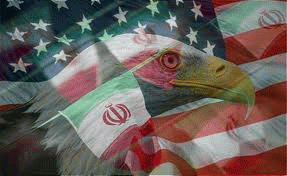Washington's Iranian Future
In Election 2012's theatre-of-the-absurd "foreign policy" debate, Iran came up no less than 47 times. Despite all the fear, loathing, threats, and lies in that billionaire's circus of a campaign season, Americans were nonetheless offered virtually nothing substantial about Iran, although its (non-existent) WMDs were relentlessly hawked as the top U.S. national security issue. (The world was, however, astonished to learn from candidate Romney that Syria, not the Persian Gulf, was that country's "route to the sea.")
Now, with the campaign Sturm und Drang behind us but the threats still around, the question is: Can Obama 2.0 bridge the gap between current U.S. policy (we don't want war, but there will be war if you try to build a bomb) and Persian optics (we don't want a bomb -- the Supreme Leader said so -- and we want a deal, but only if you grant us some measure of respect)? Don't forget that a soon-to-be-reelected President Obama signaled in October the tiniest of possible openings toward reconciliation while talking about the "pressure" he was applying to that country, when he spoke of "our policy of... potentially having bilateral discussions with the Iranians to end their nuclear program."
Tehran won't, of course, "end" its (legal) nuclear program. As for that "potentially," it should be a graphic reminder of how the establishment in Washington loathes even the possibility of bilateral negotiations.
Mr. President, Tear Down This Wall
Let's start with the obvious but important: on entering the Oval Office in January 2009, President Obama inherited a seemingly impregnable three-decade-long "Wall of Mistrust" in Iran-U.S. relations. To his credit, that March he directly addressed all Iranians in a message for Nowruz, the Iranian New Year, calling for an "engagement that is honed and grounded in mutual respect." He even quoted the thirteenth century Persian poet Sa'adi: "The children of Adam are limbs of one body, which God created from one essence."
And yet, from the start he was crippled by a set of Washington misconceptions as old as that wall, and by a bipartisan consensus for an aggressive strategy toward Iran that emerged in the George W. Bush years when Congress ponied up $400 million for a set of "covert operations" meant to destabilize that country, including cross-border operations by special forces teams. All of this was already based on the dangers of "the Iranian bomb."
A September 2008 report by the Bipartisan Policy Center, a Washington think tank, was typical in assuming a nuclear-weapons-capable Iran as a fact. It was drafted by Michael Rubin from the neoconservative American Enterprise Institute, the same AEI that had unashamedly promoted the disastrous 2003 invasion and occupation of Iraq. Several future Obama advisers "unanimously approved" the report, including Dennis Ross, former senator Charles Robb, future Deputy Secretary of Defense Ashton Carter, Anthony Lake, future U.N. ambassador Susan Rice, and Richard Clarke. The 2007 National Intelligence Estimate by all U.S. intelligence agencies stating that Iran had ended any nuclear weapons program in 2003 was bluntly dismissed.
Mirroring the Bush administration's "all options are on the table" approach (including cyberwar), the report proposed -- what else? -- a military surge in the Persian Gulf, targeting "not only Iran's nuclear infrastructure, but also its conventional military infrastructure in order to suppress an Iranian response." In fact, such a surge would indeed begin before George W. Bush left office and only increase in scope in the Obama years.
The crucial point is this: as tens of millions of U.S. voters were choosing Barack Obama in 2008, in part because he was promising to end the war in Iraq, a powerful cross-section of Washington elites was drafting an aggressive blueprint for a future U.S. strategy in the region that stretched from North Africa to Central Asia and that the Pentagon was then still calling the "arc of instability." And the key plank in this strategy was a program to create the conditions for a military strike against Iran.
R.e.s.p.e.c.t.?
With an Obama 2.0 administration soon to be in place, the time to solve the immensely complex Iranian nuclear drama is now. But as Columbia University's Gary Sick, a key White House adviser on Iran during the Iranian Revolution and the Tehran hostage crisis of 1979-1981, has suggested, nothing will be accomplished if Washington does not start thinking beyond its ever-toughening sanctions program, now practically set in stone as "politically untouchable."
Sick has proposed a sound path, which means that it has no hope of being adopted in Washington. It would involve private bilateral discussions by credible negotiators for both sides based on a mutually agreed-upon agenda. These would be followed by full-blown negotiations under the existing P5+1 framework (the five permanent members of the U.N. Security Council -- U.S., Russia, China, France, and Britain -- plus Germany).
Considering the frantic post-2009 seesawing of sanctions, threats, cyber attacks, military surges, and colossal mutual incomprehension, no one in his right mind would expect a pattern of "mutual respect" to emerge easily out of Washington's "dual track" approach.
It took Ambassador Hossein Mousavian, research scholar at Princeton University's Woodrow Wilson School of Public and International Affairs and spokesperson for the Iranian nuclear negotiating team from 2003 to 2005, to finally explain it all last August in a single sentence: "The history of Iran's nuclear program suggests that the West is inadvertently pushing Iran toward nuclear weapons." Chas Freeman, former U.S. Ambassador to Saudi Arabia, agrees, suggesting in a recent speech that Iran now "seems to be reenacting Israel's clandestine weapons development program of five decades ago, developing capabilities to build and deliver nuclear weapons while denying that it intends actually to do any such thing."
What makes these developments even more absurd is that a solution to all this madness exists. As I've written elsewhere, to satisfy the concerns of the West regarding Iran's 20% stockpile of enriched uranium...
(Note: You can view every article as one long page if you sign up as an Advocate Member, or higher).







